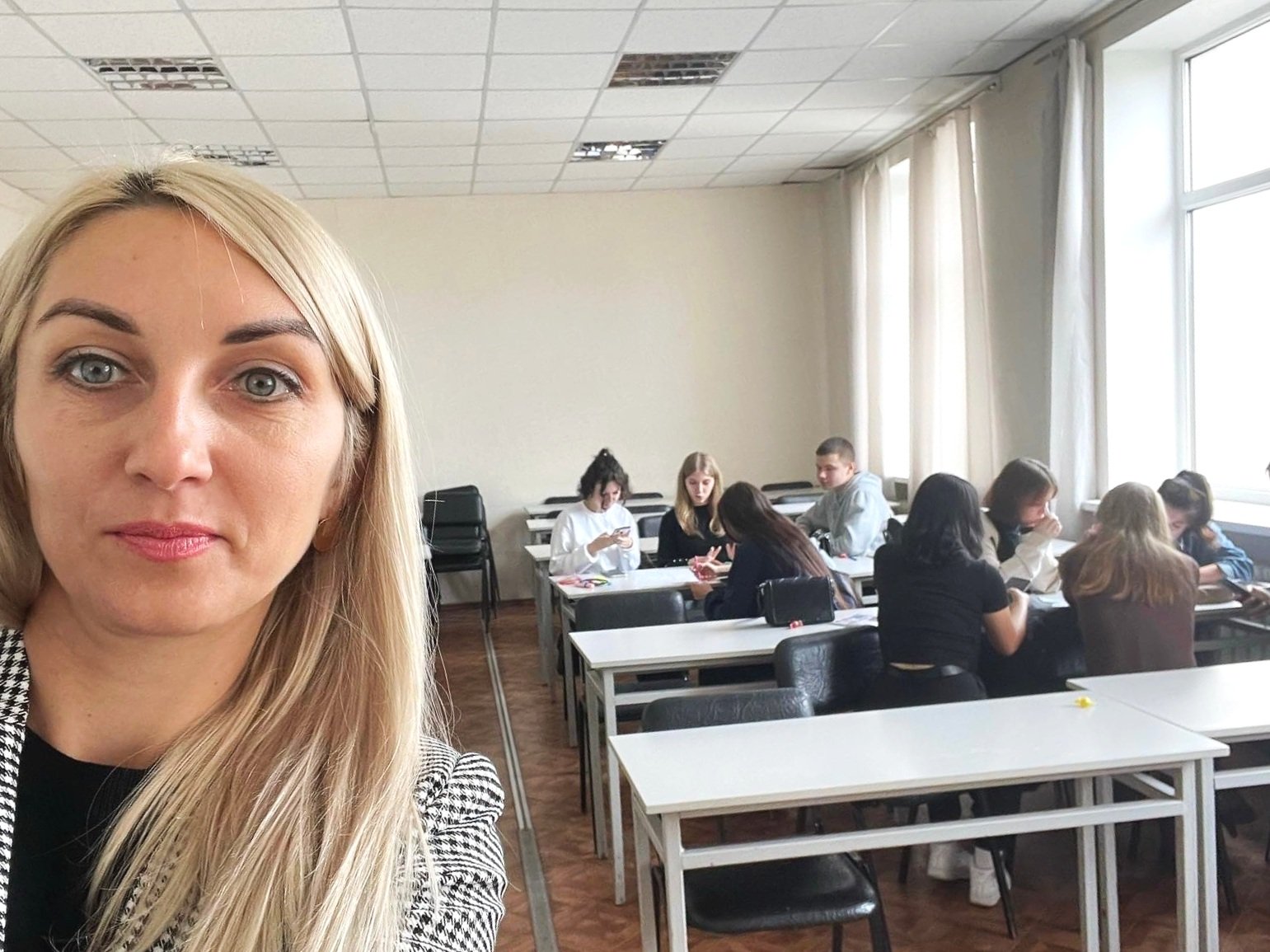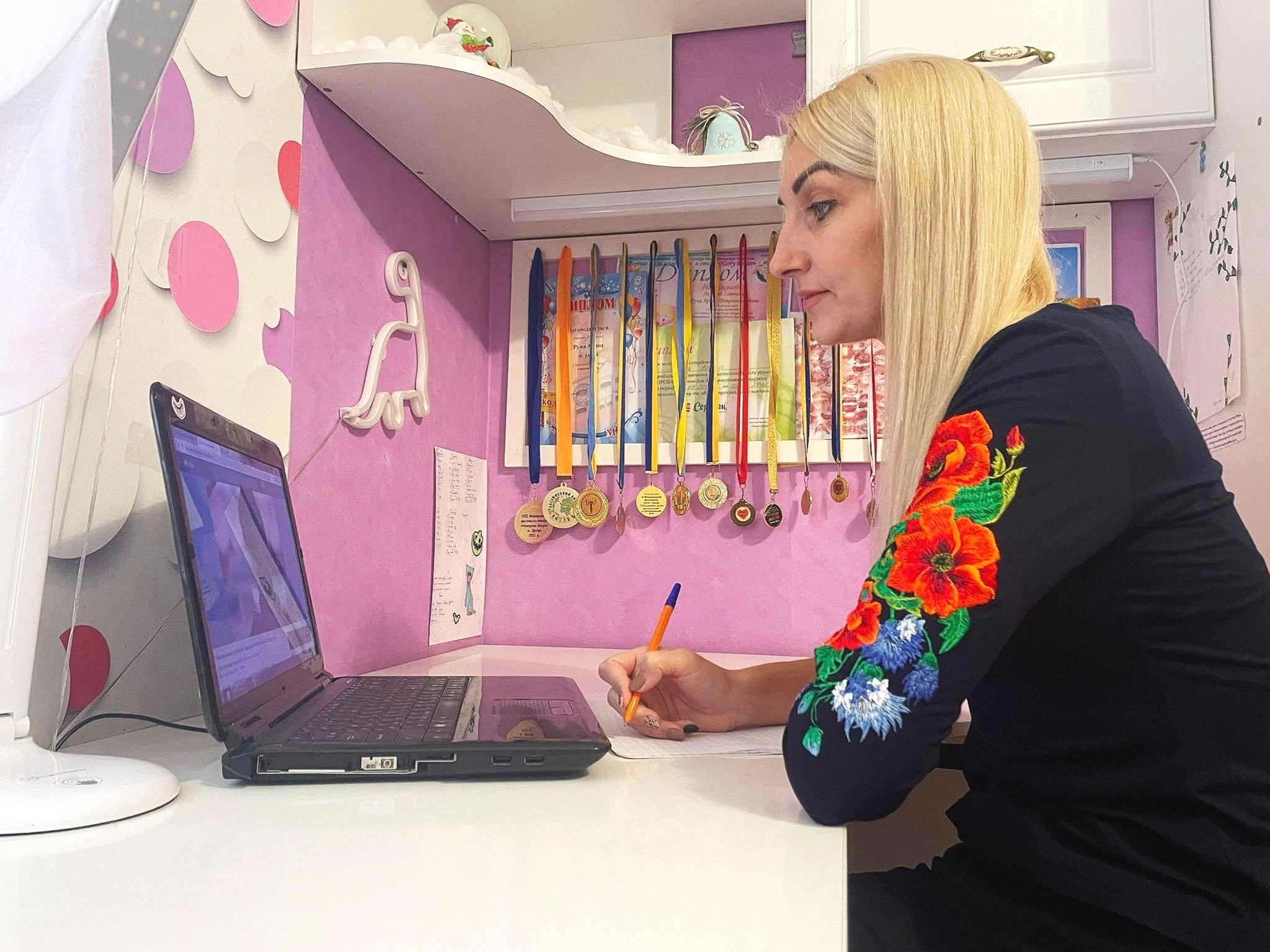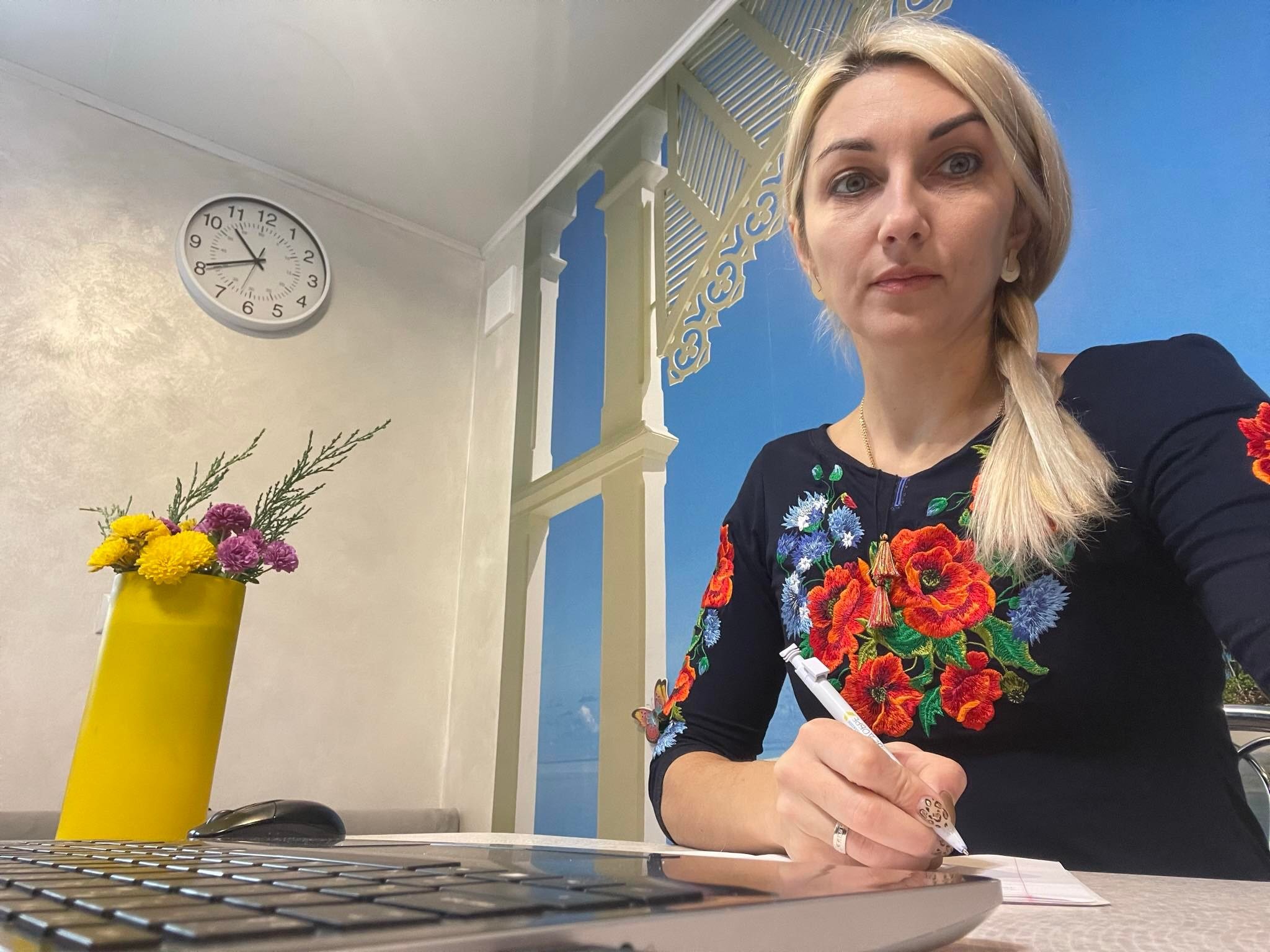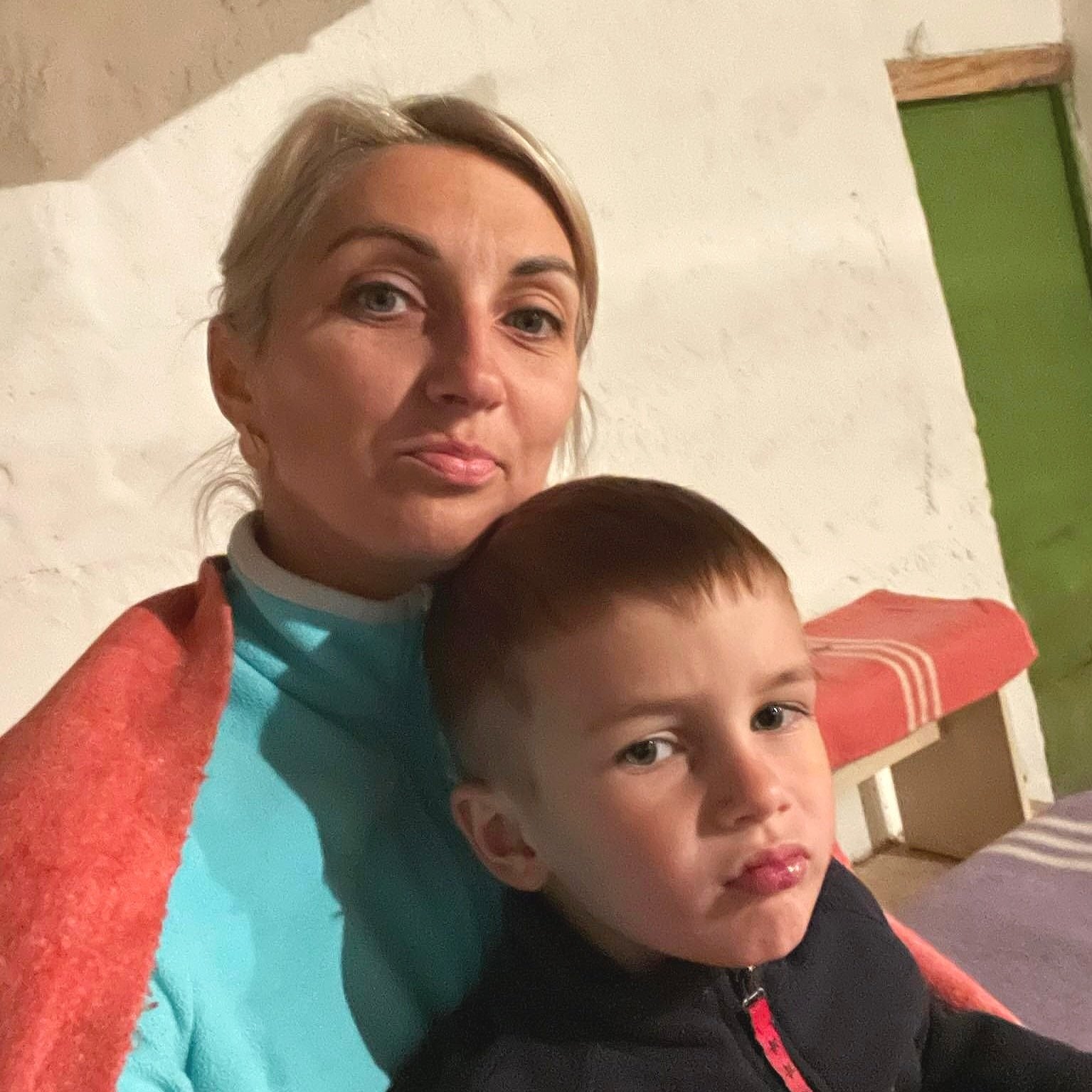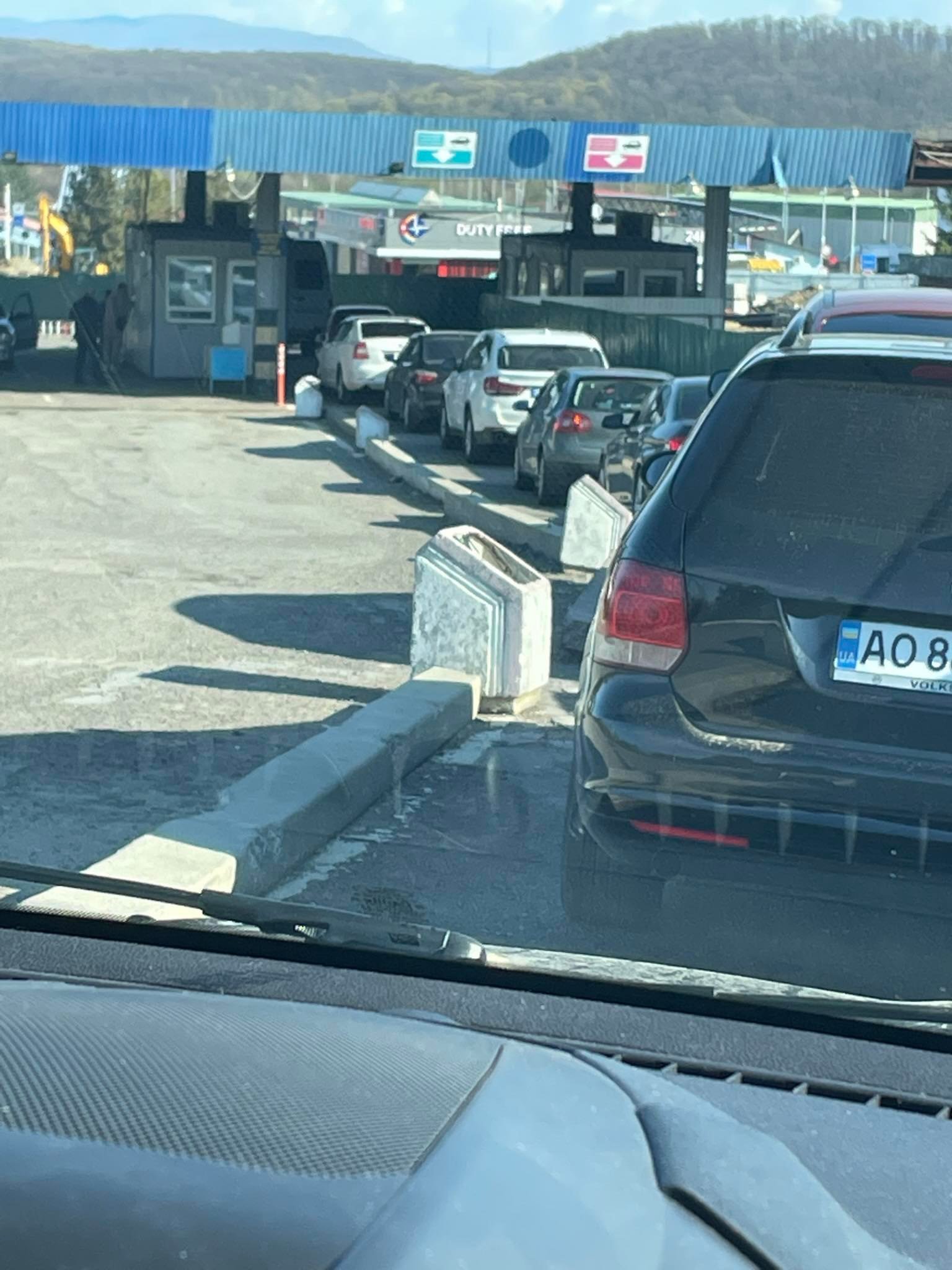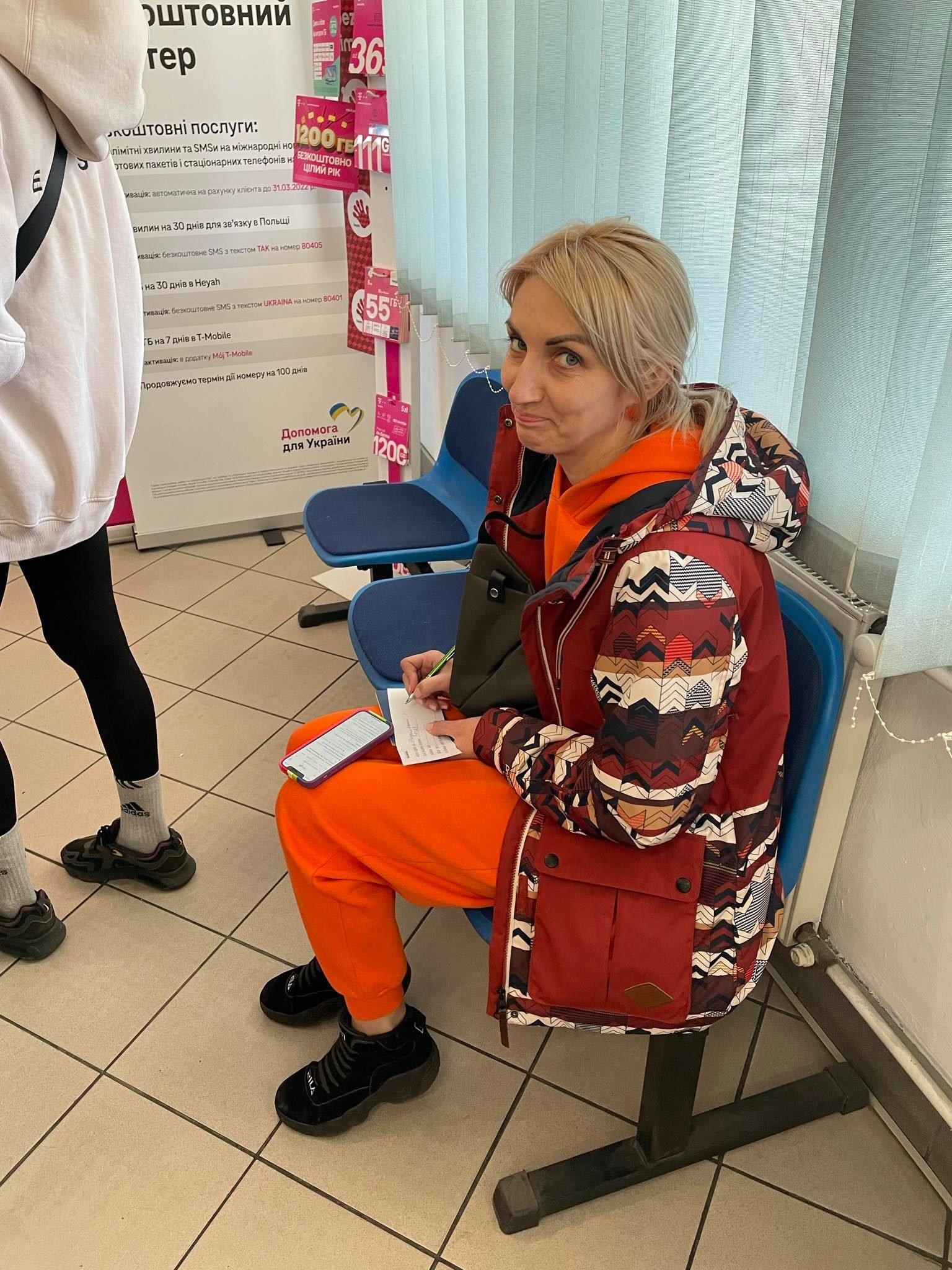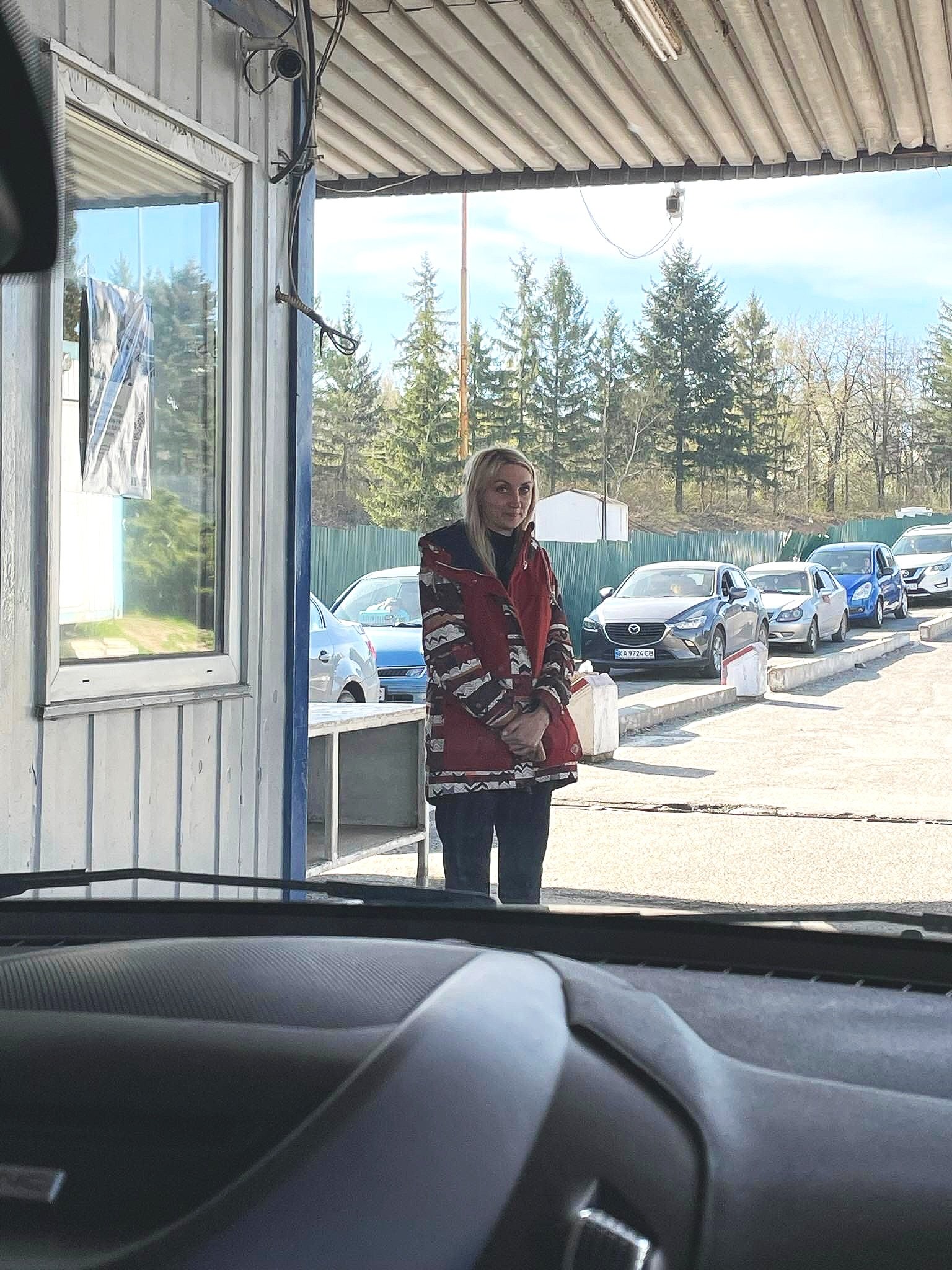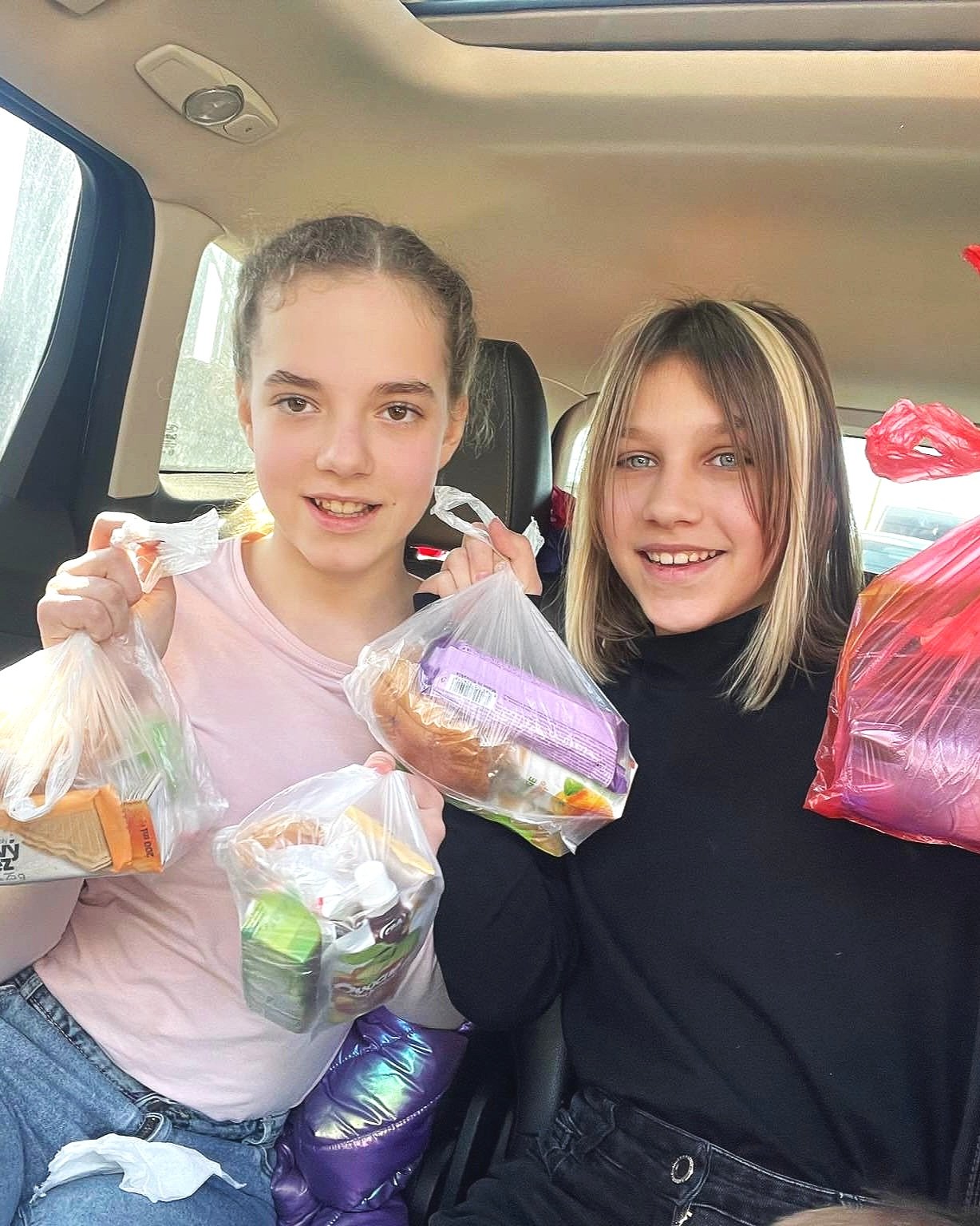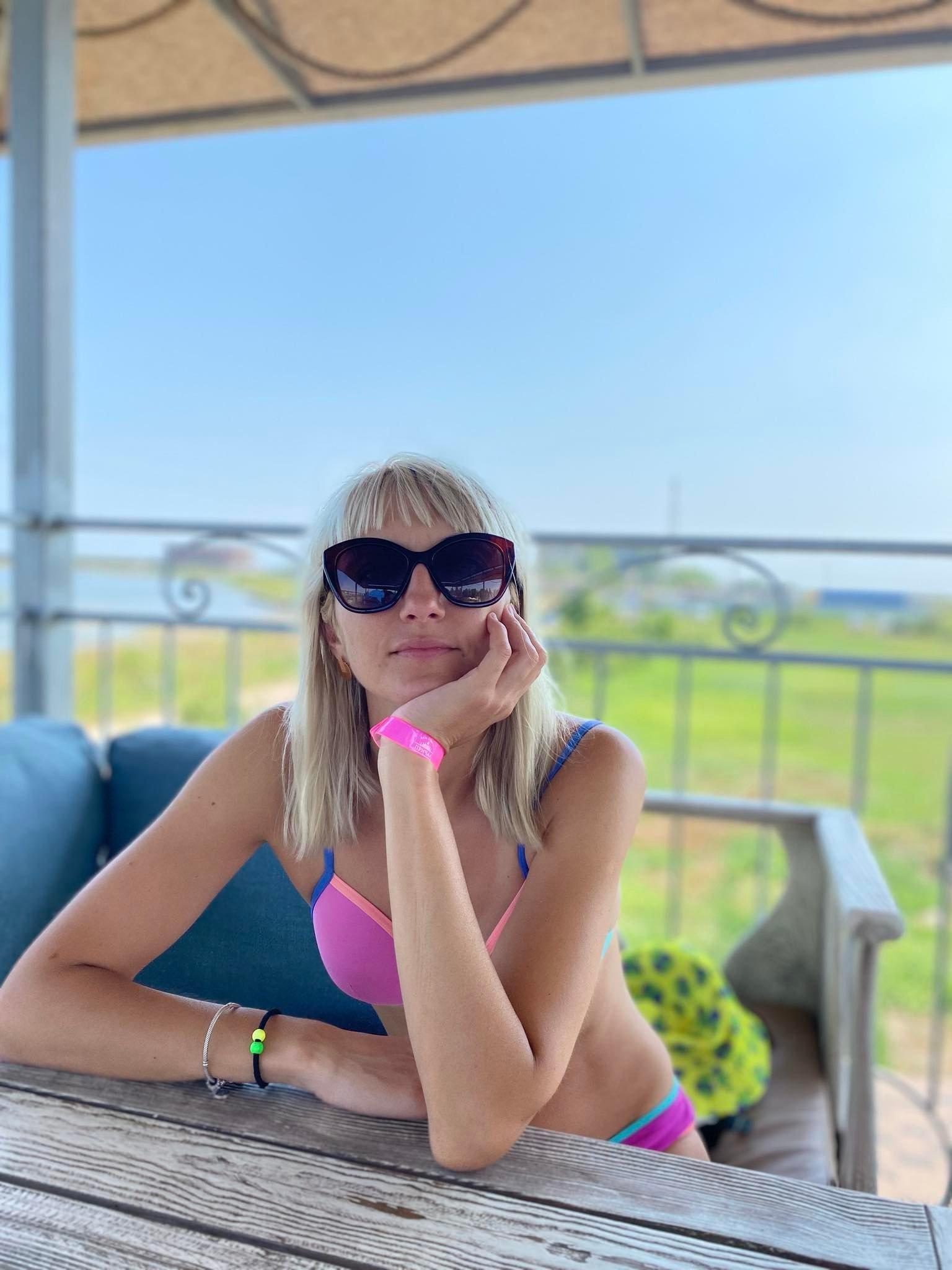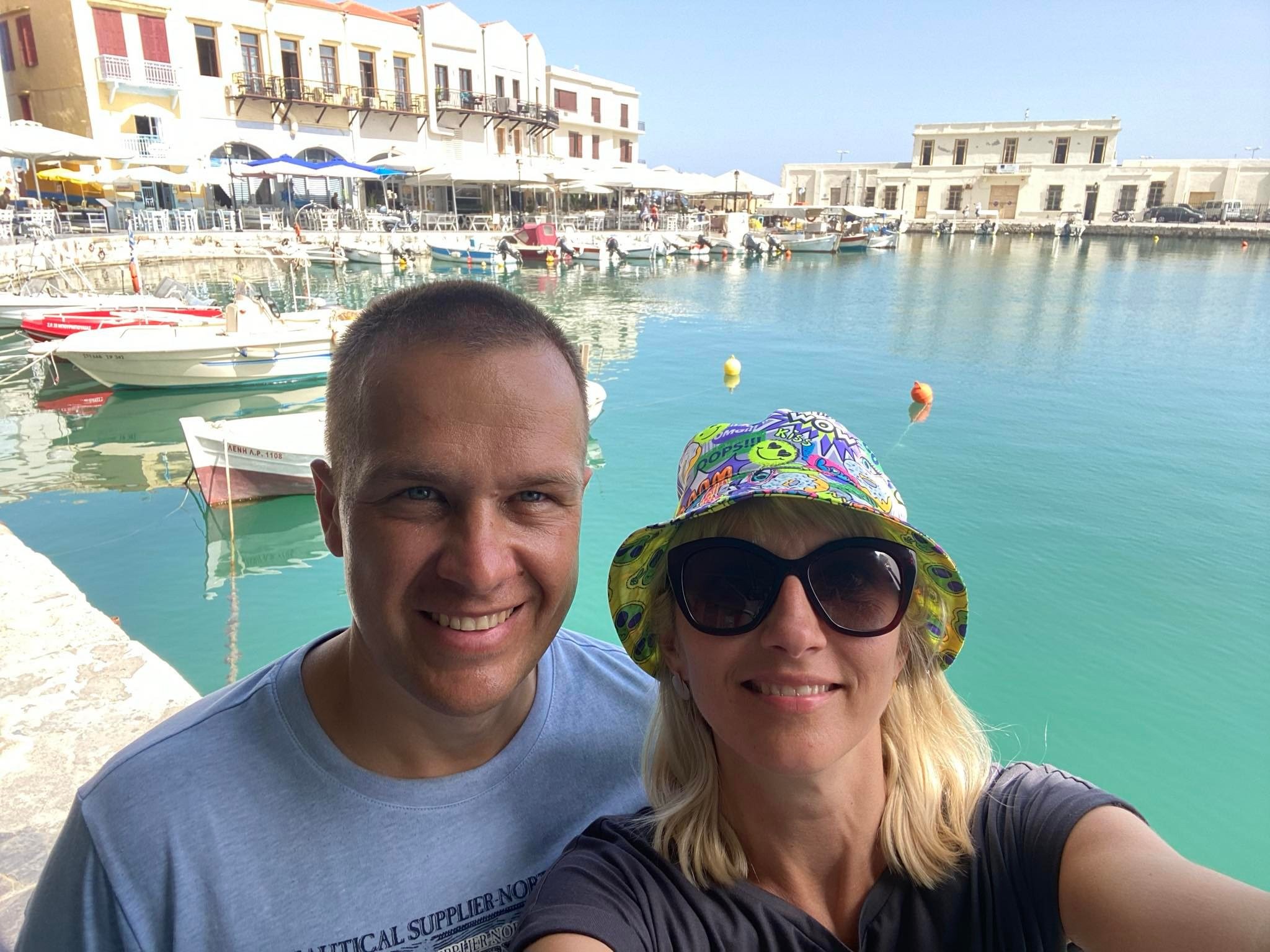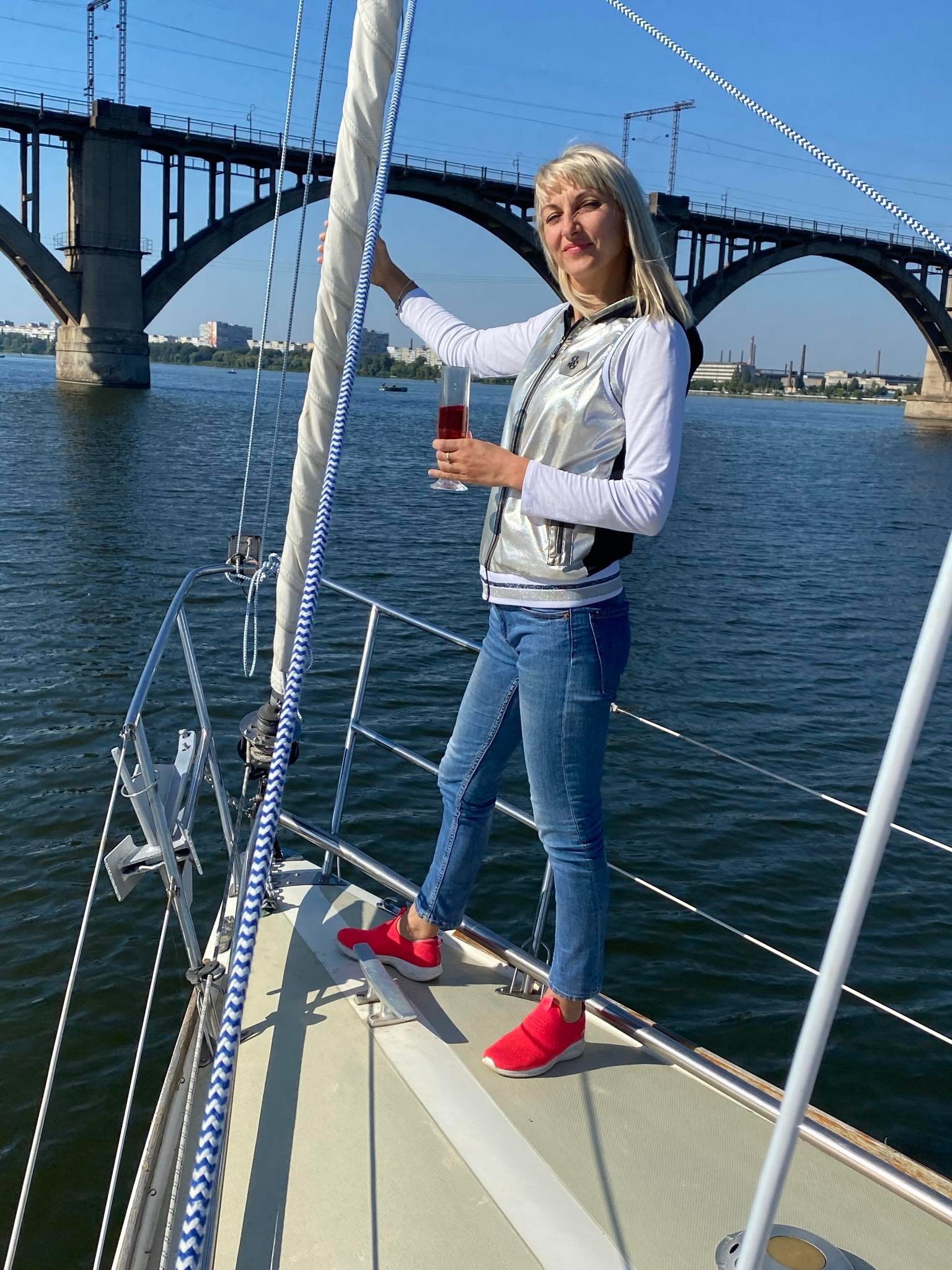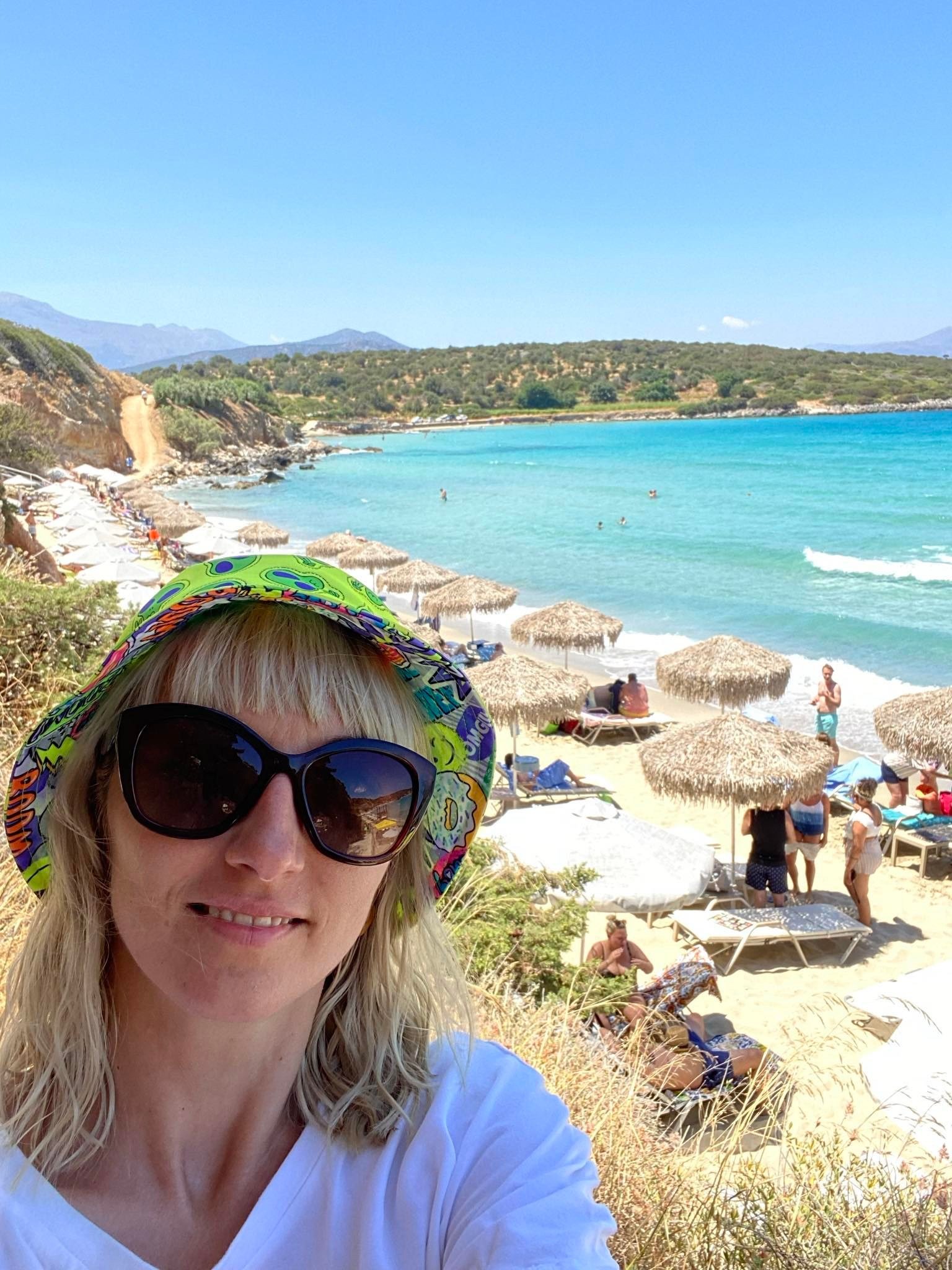This INSIDE UKRAINE story is from THE CITY OF DNIPRO.
* All images and answers in the feature were provided by the WOW Woman, unless otherwise specified.
INSIDE UKRAINE SERIES: A SNAPSHOT, A DAY-IN-THE-LIFE, A GLIMPSE OF WHAT IT’S LIKE TO LIVE, RESIST, SURVIVE AND PERSEVERE IN A NATION UNDER ATTACK.
GLORY TO THE UKRAINIAN WOW WOMEN, for SUPPORTING THEIR COUNTRY AND BRINGING UKRAINE CLOSER TO VICTORY.
“Since russia attacked sovereign Ukraine, I’ve witnessed every-day Ukrainians showing determination and resilience, fighting the aggressor with all their might. This “Inside Ukraine” feature is about Ms. Natalia Sorokina, a University professor and a WOW Woman. Ms. Sorokina teaches at the Dnipro Polytechnic, one of the oldest universities in Ukraine’s third largest city. Natalia is resisting the russian aggressor by providing ammunition for the next generation of Ukrainians; her Facebook is filled with posts encouraging Ukrainian students to present at the various scientific conferences and to remember to apply for upcoming scholarships. By staying and teaching in Ukraine, Natalia is demonstrating resistance and pushing young scholars to stay on the academic track, publish and continue applying for research grants. How incredible, as the war rages on, Ukrainians are determined to keep learning and pushing onward.
Here is one example I read, encouraging participation: “Dear colleagues! We invite you to participate in the XIII International Scientific and Technical Conference of Undergraduate and Young Ukrainian Scientists, ‘Scientific Spring’, to be held on March 1-3, 2023. Participants invited: graduates, PhDs, young scientists. Working languages of the conference: Ukrainian, English. Participation in the conference is free”. Aren’t we all just for spring; scientific spring sounds even better.
or this: “Open competition for an online scholarship under the DAAD program ‘Ukraine Digital: Ensuring Academic Success in Crisis, 2023’, geared for students who have remained in Ukraine and continue their studies at the Dnipro Polytechnic University”. This scholarship is for young minds who have remained in the country under russian invasion! The war and the cruelty of the aggressor do not get to diminish the pursuit of knowledge and happiness!
Many folks around the world are bewildered at how Ukrainians are able to function under stress, live in uncertainty and keep hope alive under a constant threat of russian terror. Those who expected Ukrainians to fold arms and surrender were left in shock and awe. When I take in collective Ukrainian resistance, one of the ways the spirit of the nation is apparent is through these calls for student participation; Professor Sorokina and her young Ukrainian scholars are eager to keep striving and learning, one scientific submission at a time.
Of course, one cannot help but acknowledge the russia-perpetuated dispersal of Ukrainians (students including); many women fled abroad as refugees and over 57,000 women are currently serving in the Ukrainian military; 6,000 women have been deployed on or near the front lines, in roles like paramedics, intelligence officers, snipers and artillery gunners. Countless students volunteered to serve and many heroically lost their lives on the front. Meanwhile, the russian federation continues to systematically destroy Ukrainian educational institutions; surely, one of their vicious goals is a complete disruption of the academic progress of the future generation. Russian troops bomb schools and universities, kindergartens and orphanages. As of February 12, 2023, according to Saveschools.in.ua, 438 learning institutions have been destroyed by the russian aggressor; 3,098 have been damaged.
But Ukrainians will persevere! And I am proud to feature Ukrainian stories of defiance and resistance, in whatever shape or form.”
- Olga Shmaidenko, Founder of WOW Woman.
Educator, Professor, Academic, Dnipro, Ukraine
1. Name.
Natalia Sorokina.
2. Where were you born and where do you live now?
I was born in Kamianske, (formerly Dniprodzerzhynsk), but now live and work in Dnipro.
Dnipro is the third-largest city in Ukraine (as of 2018, population of 1,000,000); it’s one of the largest metallurgical and machine-building centers in Ukraine. It is a railroad center, a river port, an air port and serves as an important cultural center for the region. During the Second World War, Dnipropetrovsk was one of the main centers of anti-German resistance and it sustained extensive destruction.
Dnipro has several major scientific research institutes and engineering-design institutes, most of which were connected with heavy metallurgic industry. Among them are: The Dnipro Scientific Center of the National Academy of Sciences of Ukraine; The Scientific Research Institute of Ferrous Metallurgy and Automation; The Institute of Physical Chemistry of the National Academy of Sciences of Ukraine; The Scientific Research Institute of Pipes; The Institute of Epidemiology, Microbiology, and Hygiene and others.
There are twenty institutions of higher education in Dnipro, among them nine universities (Dnipro National University, Dnipro University of Technology, Dnipro National University of Railway-Transport, Dnipro State Agrarian University, and others); five academies (including National Metallurgical Academy of Ukraine, Dnipro State Academy of Civil-Engineering and Architecture, Dnipropetrovsk Medical Academy, and others) and six institutes. The city has 163 schools, including lyceums and tekhnikums, and 17 specialized schools. (see source)
Це була поїздка до Берліну. Захід називався Ukrainian-German Advent Week, який проходив з 10 по 17 грудня 2022 року. До Берліну було запрошено 5 професорів та 5 студентів з різних регіонів України ( Київ, Дніпро, Одеса, Львів, Харків). З Дніпра була тільки я одна. На протязі тижня ми обговорювали з професорами Берлінської школи економіки і права (Berlin School of Economics and Law) різні питання щодо вищої освіти в умовах війни. Саме на фото я презентувала свій доклад на цю тему. Основний меседж докладу був про те, що українська освіта зараз існує в період викликів. Спочатку пандемія COVID-19, потім повномасштабна війна в Україні зумовили об’єктивний перехід Українських закладів вищої освіти на дистанційну форму навчання. В докладі я зазначила, що основними напрямками розвитку вищої освіти України в повоєнний період буде: (1) адаптація до європейських стандартів у контексті реалізації статусу кандидата на членство в ЄС; (2) відновлення пошкодженої та зруйнованої інфраструктури; (3) повернення вимушено переміщених учасників освітнього процесу; (4) продовження політики реформування сфери вищої освіти. Тож дуже приємно, що берлінські колеги цікавляться нашими проблемами, підтримують нас та запрошують на різні заходи.
This picture was taken in Germany at the end of 2022. Five professors and five students from different regions of Ukraine were invited by the Berlin School of Economics and Law. Ukrainians from Kyiv, Dnipro, Odesa, Lviv and Kharkiv attended; I was the only one from Dnipro. The main topic of the discussion centered around access to quality education, under the conditions of war. The photo above captures the title of my presentation on the topic. The main message of my report: Ukrainian education is under severe challenges. The COVID-19 pandemic, then the full-scale war in Ukraine caused the objective transition of Ukrainian institutions of higher education to distance education. In the report, I concluded that the main directions of the development of higher education in Ukraine in the post-war period will be: (1) adaptation of Ukrainian education to the European education standards, in the context of Ukraine finally realizing the status of a candidate for the EU membership; (2) restoration of the damaged and destroyed Ukrainian infrastructure; (3) return displaced students back to the educational process; (4) the need to continue the policy of reforming the sphere of higher education inside Ukraine. Overall, I was touched that our German colleagues showed interest in our problems, invited, hosted and supported us in this joint meeting.
3. What did you study and what is your profession?
I finished my undergrad at the Dniprodzerzhynsk State Technical University, graduating in 2005 with the degree in Organizational Management. At that time, I became passionate about education and decided to pursue my career in education. In 2008, I completed postgraduate studies at the Dnipropetrovsk Regional Institute of Public Administration under the President of Ukraine, defended my thesis and obtained PhD in Public Administration. In 2021, I defended my doctoral dissertation and became a Doctor of Public Administration.
Now, I work as the Associate professor at the Department of Public Administration and Local Self-Government. I am also a Scientific Secretary of the Educational and Research Institute of Public Administration of the Dnipro University of Technology.
4. What was your typical day like before the war and how has your role changed since the invasion of Ukraine? How has Ukrainian educational system been functioning during this intense war time?
If we are talking about the field of education, we have many challenges, as we are currently forced to work under extreme conditions (of war). It is impossible to fully carry out the educational process under constant air alarms, power and internet outages. The statistics on destroyed-by-Russia educational institutions are also very sad: according to the Ministry of Education and Science, 3,098 educational institutions were damaged by bombings and shelling, 438 were completely destroyed. This includes higher educational institutions, middle and high schools, colleges, kindergartens, extracurricular education institutions (source: saveschools.in.ua ). Many higher education institutions evacuated from occupied by Russia territories to safer Ukrainian cities. For example, Pryazovsky State Technical University relocated from Mariupol to my city, where it is now located on the grounds of our university.
Our university (Dnipro University of Technology or "Dnipro Polytechnic") is the oldest in the city of Dnipro, with more than 10,000 students learning at any given time. To be honest, I don't have exact national statistics on the number of students before and after the war. However, as far as I know, the number of students at our university has not decreased (and if it has decreased, then not by much). Many of our applicants moved from the occupied territories (such as Mariupol) and graduated in our region. Furthermore, according to the Ministry of Education and Science, the number of people willing to study in Ukraine did not decrease much due to the war. According to their calculations, this year there are only 5-10 percent fewer applicants than in previous years. This is a fairly small percentage on the scale of the whole of Ukraine. Due to the fact that learning now takes place in an online distance format, it makes it possible to obtain an education, even for those students who are not directly in Dnipro. This is an advantage for many long-distance students who may be in the safer areas, away from russian shelling, and can still attend our classes.
I currently teach Social Policy to the first-year undergraduates as well as the Academic Integrity on a graduate level. Additionally, I conduct advanced training lectures to the Ukrainian public servants on the topics of integrity and etiquette in Public Service. My sphere of interest lies precisely in the last two topics, because I defended my dissertation on the topic of Moral and Ethical Foundations of Public Service in Ukraine.
In my personal life, my family consists of my husband Igor (lawyer), our daughter Arina (13 years old) and son Artem (5 years old). Before the war, our day started with everyone gathering in the morning, having breakfast and leaving for work, my daughter for school and my son for kindergarten.
Працювали офлайн зі студентами тільки один тиждень у вересні для того, щоб хоча б познайомитись. Працюю вдома в дистанційному форматі. С Артемом у бомбосховище на початку війни.
In the images above: I spent only one week working with my students face-to-face. We got to know one another, and the rest of the school year was remote, from home, due to the war. In the last image, my son Artyom and I are waiting inside the bomb shelter (at the very beginning of the war).
After the war started, we were all forced to stay at home (except my husband who is a lawyer and has meetings). All kindergartens in Dnipro are closed; elementary, middle and high schools are carrying on in an online format. Of course, it is very difficult for me to work, prepare for and give lectures, write scientific articles and grade papers, when I constantly need to pay attention to the children. At this time, we take our son to a private kindergarten, as needed, so I am able to get work done. Of course, these sound like conditions during the COVID year, but the added pressure of war and the danger from russian bombs gives everything an additional tinge of stress.
I’m disheartened with the progress of elementary, middle and high school education. It makes me sad, because I witness it with my daughter’s school and level of effort. Not all children are able to thrive in an educational system where only independent processing of the material is required. Such learning style is intended only for responsible children, those who want to learn themselves. However, unfortunately, the percentage of such kids is small and most adults (who work themselves) don’t have the capacity to teach and ensure sufficient attention is paid while remote learning. I am very concerned about this young war generation of students; they "learned" in a distance format for two years due to COVID, now they are forced to continue their online studies due to the raging war. This format, along with the incredible stressors the war brings, greatly affects kids’ knowledge base and alters basic learning competences (such as retention and processing of information, learning and absorbing of difficult concepts as well as basic socialization with the peers).
Bottom line, we are looking very much forward to Ukraine’s victory. We are hoping for peace in our country. We desperately want to return to the normal life we had before the war.
В березні 2022 я зі своєю кумою вирішили виїхати до Польщі для безпеки наших дітей. Ми їхали в нікуди, адже не знали точно, де зможемо знайти прихисток. Чесно кажучі, ми розраховували на волонтерів, які знаходилися на кордоні з Польщею. Адже багато наших знайомих влаштувалися саме завдяки їм. Однак в кінці березня поляки вже прихистили дуже багато українців і знайти нормальні умови було дуже складно. І коли ми приїхали до першого волонтерського пункту в Польщі, нам запропонували залишитися ночувати в торгівельному центрі на розкладачках. А потім вже як получиться, будуть шукати інші варіанти. Для нас це був виклик. Ми не були готові до такого, тому вирішили, що це знак і необхідно повертатися додому. Тому наша подорож до Польщі тривала три години. Ми і досі згадуємо це з усмішкою , адже ще ніколи у нас не було такої короткої подорожі за кордон). Після цього ми прийняли рішення залишитися на Західній Украіні, адже це був самий безпечний регіон в Україні. Так ми 2 місяці прожили в Мукачево як переселенці. Це ми на кордоні оформлюємо документи. А дівчатам волонтери дали пакунки з солоденьким, тому ім було що робити в черзі.
Above images are from March 2022. Just a month into the start of the full-scale attack on Ukraine. My friend and I decided to leave for Poland, to seek safety for our children. Most people, us included, were driving to “nowhere”, without knowing where exactly we would find shelter, even for that first night. To be honest, in our minds we relied on volunteers stationed on the Polish border. We heard stories from our friends who managed to find work through contacts with the various Polish volunteers. However, by the end of March in Poland, it was very saturated with Ukrainian refugees, and by that point the Poles had already welcomed close to 2 million Ukrainians. It was very difficult to find reasonable suitable living and sleeping conditions. When we arrived at the first volunteer point in Poland, we were directed to spend the night in a shopping center, in a room filled with cots. We decided to look for other options for our kids, but it was a real challenge; we were just not ready for this, both mentally nor physically. We all talked it over, and decided that it was our sign to return home to Ukraine. As a result, our “trip” to Poland lasted three hours. We are fortunate to remember it now with somewhat of a smile because we have never had such a short trip abroad. In the above photos we are driving toward the Polish checkpoint, filling out the documents at the border. Kind international volunteers gave the girls packets of sweets, so they had something to do in the queue.
When we re-entered Ukraine, we decided to settle temporarily in Western village called Mukachevo. We spent two months there, as displaced persons.
5. What would you say are your strengths and superpowers?
I believe that my strength is my sense of responsibility. If I promised something, I will definitely keep my promise. I am always ready to help; my friends know that they can always count on me, in any situation.
I don't have superpowers, because I'm an ordinary Ukrainian girl.
6. What are some concrete actions (big or small) you’ve done and continue doing to help Ukraine and Ukrainian people?
When talking about helping our country win, all Ukrainians are currently volunteering in various capacities. At the start of the war, we helped many displaced (from the east of Ukraine) people. We bought all the necessary items and gave away the pillows and blankets we had at home. We consistently transfer funds to the Armed Forces of Ukraine. We also support the paramedics who are rescuing Ukrainian defenders and civilians wounded by the russian aggression. Recent tragedy affected us especially hard on January 14, 2023 (a Russian Kh-22 type missile hit Ukrainian nine-story residential building in Dnipro, destroying 236 apartments within a second, killing 46 people (including six children) and injuring 80. We wanted to help every family, although we of course understood that financial assistance cannot heal a child who lost his or her parents.
7. What are things you do just for you? Is it possible to stay sane in a war situation? What are some things that help you to not lose yourself?
I have always been quite calm, balanced and non-confrontational. However, now I can very easily get thrown off balance or startle for no particular reason. I associate this change of behaviour with the war. Ukrainians are constantly under stress; every day we read terrible news about death, destruction and crippled destinies. Plus, there is a teenager growing up in my home, with whom it is sometimes difficult to find a common language. All these leave an impression on my moral state. To be honest, sometimes it's enough just to cry and it gets easier. At such moments, I remind myself that I am a positive person and should feel grateful every day; I have a wonderful family, healthy parents, a roof over my head, a job, friends. Therefore, it is a sin for me to complain.
Before the war.
8. Do you feel the war changed you? How? Since the start of the war, has anything surprised you about yourself (how you have handled yourself, remained strong, found inspiration in unlikely sources, etc.), about your country, about your ideas about humanity? What have been some of your epiphanies?
I never thought that I would live during the time of war. I don't know if the war changed me. Probably so. I became more sensible and wise; I began to adopt “living-for-today” mentality. After all, we don't know what will happen tomorrow; not in this day and age.
If someone told me a few years ago that I would sleep soundly through the air raids, live in a city where rockets are flying over my head, where on-the-ground battles with an invader are taking place only 100 km from my house, I probably wouldn't have believed it, However, no matter how scary it sounds, you get used to everything. The only thing I understand now, is that I did the right thing when I stayed in Ukraine with my husband and children, all of us together. Family is the most important thing, no matter what.
9. What do you want the world to know about Ukrainians at this moment in time? About Ukrainian women?
I think the world is already convinced that Ukrainians have indomitable spirit and unbreakable will. We are more united now than ever before. We cannot and will not be defeated! Ukrainian women are the reliable support and a backbone of our country; they are smart, beautiful, hardworking, and the bravest. It is incredibly painful that the war takes away the most valuable things from many of our women: children, husbands, parents are killed every day by the enemy. It pains me to see destroyed, by the war, families.
10. Who are your WOW Women who inspire you?
I know many scholars who inspire me, whom I admire greatly. These WOW Women lead many projects that contribute to the fields of education and science. In particular, during the war period these women have been actively involved in volunteering and helping Ukraine:
Olesia Vashchuk – Head of the Council of Young Scientists at the Ministry of Education and Science of Ukraine, Head of the Scientist Support Office, Professor at the National University "Odessa Law Academy", Volunteer - Coordinator at the Charity fund Human. @olesya.vashchuk
Iryna Degtyaryova - moved to Warsaw before the war. She works at the Warsaw School of Economics, is a member of the Foundation of Polish rectors, @iryna.degtyaryova
Mariia Tyshchenko – Executive Director of NGO "Paruch", Honorary Doctorate at Malmö University, @Mariia-Tyshchenko
and many others.
11. What is a place or activity that makes you feel happiest?
I enjoy spending time with my husband. Sometimes I really just want to go to a restaurant or watch a movie together, without anyone disturbing us.
Еко парк Фельдмана в Харкові. Зараз повністю зруйнований. Захист докторської дисертації. Захист докторської дисертації.
Before the war. In the photos above: Fall at the Fldman Ecopark in Kharkiv. This unique space (that housed a petting zoo and wild animals) is now completely destroyed. In another image I’m defending my doctorate dissertation.
12. What will be the first thing you’ll do when Ukraine wins? What are your dreams for yourself and your family after the war is finished?
When Ukraine WINS, and I believe in this, it will be one of the happiest days in my life. First of all, I will remove the tape from my windows (for your information, in Ukraine, everyone glues tape across the windows, so that the glass does not shatter after the explosions).
Furthermore, I would very much like to make my (albeit small) contribution to the development of our country. I don't know how yet, but I think time will tell. I really dream that Ukraine will finally become a strong European country. I want us and future generations to be proud to have been born here.
Finally, I also have a very banal desire: after the war, I would like to travel more with my family.
(1) Це фото з Бердянську, який зараз окупований. До війни ми їздили на Азовське море по декілька разів на сезон. І дуже боляче, що зараз ми не можемо це робити. (2) З чоловіком в Греції. (3) По Дніпру на яхті. Зараз заборонено кататися по Дніпру на будь-якому водному транспорті. (4) Греція.
(1) This photo is from Berdyansk, which is currently occupied. Before the war, we enjoyed travelling to the Sea of Azov. It really hurts that we can't do it now. (2) With my husband in Greece. (3) On the Dnieper river, by yacht. It is now forbidden to ride on the Dnieper recreationally. (4) Greece.
13. Where can others find you/your work? (links to website, blog, etc).
Work links and Scientific publications:
Dnipro University of Technology profile: @teachers/Sorokina/Sorokina
My publications are listed here.
A few specific papers I published in 2022:
Formation of moral and ethical foundations of the public service of Ukraine in the context of modern challenges, in Globalization Challenges: Governing the Future, 431-432. 2022
Professional and ethical training of public servants as a necessary condition for establishing a moral and ethical climate in the public service, Aspects of public administration 10 (1), 5-11, 2022
The Place and Role of Professional Ethical Training in the Process of Ensuring Charity in the Public Service, Recommended for publication by the academic council of the Leonid Yuzkov Khmelnytskyi University of Management and Law (protocol No. 9 dated January 31, 2022)
Restoring trust in government as a prerequisite for the formation of effective public administration in Ukraine, in Journal of Public Policy and Administration 19 (4), 2020
Further professional qualifications here and here.
Social networks: @nata.sorik
1. Імʼя.
Наталія Сорокіна.
2. Де ви народилися і де ви зараз живете?
Я народилась у Дніпродзержинську (зараз Кам’янське). Після одруження переїхала до Дніпра.
3. На кого навчались та за якою професією працюєте зараз?
Вищу освіту здобула у Дніпродзержинському державному технічному університеті, який закінчила у 2005 році за спеціальністю менеджмент організації.
Своє життя зв’язала з освітою.
У 2008 році закінчила аспірантуру Дніпропетровського регіонального інституту державного управління Національної академії державного управління при Президентові України (Dnipropetrovsk Regional Institute for Public Administration National Academy for Public Administration under the President of Ukraine), захистила кандидатську дисертацію та здобула науковий ступінь PhD of Public Administration.
У 2021 році захистила докторську дисертацію (Doctor of Public Administration).
Зараз працюю доцентом кафедри державного управління і місцевого самоврядування Навчально-наукового інституту державного управління НТУ «Дніпровська політехніка» (Associate professor of the Department of Public Administration and Local Self-Government and Scientific Secretary of the Educational and Research Institute of Public Administration of the Dnipro University of Technology).
4. Як виглядав ваш звичайний день до війни та як змінилася ваша роль після вторгнення в Україну?
Якщо говорити про сферу освіти, то у нас зараз дуже багато викликів. Нам доводиться працювати в екстремальних умовах. Ми не можемо повноцінно здійснювати навчальний процес в умовах постійних повітряних тривог, відключення світла, інтернету. Також дуже сумна статистика щодо зруйнованих освітніх закладів. За даними Міністерства освіти і науки - 3075 закладів освіти постраждали від бомбардувань та обстрілів. 437 з них зруйновано повністю. Сюди входять вищі навчальні заклади школи, ліцеї, дитячі садки, заклади позашкільної освіти (https://saveschools.in.ua/). Багато вищих навчальних закладів евакуювалися в більш безпечні міста. Наприклад, Приазовський державний технічний університет переїхав з Маріуполя до Дніпра, де розташувався на базі нашого університету (Національного технічного університету «Дніпровська політехніка»).
Наш університет (НТУ «Дніпровська політехніка») найстаріший в м. Дніпро і навчає понад 10 000 студентів. Чесно кажучі, у мене немає статистики як змінилась кількість студентів до і після війни. Однак, як я знаю, то кількість студентів в нашому вузі не зменшилась ( а якщо і зменшилась, то не набагато). Адже нашими абітурієнтами стали і ті, хто переїхав з окупованих територій і випускники нашого регіону. І навіть за даними Міністерства освіти і науки охочих навчатися в Україні стало не набагато менше через війну. За їх підрахунками, в цьому році лише на 5-10 відсотків менше абітурієнтів від попередніх років. Це в масштабах всієї України достатньо малий відсоток. Також через те, що навчання зараз відбувається в дистанційному форматі, це дає можливість отримувати освіту навіть тим, хто не знаходиться безпосередньо в Дніпрі. Це є перевагою для багатьох студентів, які знаходячись в більш безпечних місцях, можуть відвідувати заняття. Я зараз викладаю дисципліни «Соціальна політика» у бакаврів 1 курсу та « Академічна доброчесність» у аспірантів. Також читаю лекції на курсі підвищення кваліфікації для публічних службовців на тему « Доброчесність публічних службовців» та «Етикет на публічній службі». Сфера моїх інтересів як раз і стосується останніх двох тем, адже я захищала дисертацію саме на тему «Морально-етичні основи публічної служби в Україні».
Моя особиста ситуація: Моя сім’я це я, чоловік Ігор (адвокат), донька Аріна (13 років) та син Артем (5 років). І якщо до війни наш день починався з того, що всі вранці збиралися, снідали та розходилися ми на роботу, донька в школу, син в дитячий садок.
То після війни ми всі змушені залишатися вдома (крім чоловіка). Адже дитячі садки не працюють, школи в дистанційному форматі, я також працюю зі студентами в дистанційному режимі. І, звичайно, мені дуже складно працювати, готуватися до лекцій, писати наукові статті, коли мені постійно необхідно приділяти увагу дітям. Наразі, ми знайшли приватний садочок, в який водимо сина за необхідністю, щоб я могла також працювати.
Також дуже сумно дивитися, як проходить навчання в школі (дивлюсь по доньці). Не всі діти можуть навчатися, де більша частина це самостійне опрацювання матеріалу. Це розраховано тільки на відповідальних дітей, які самі хочуть щось знати. Однак, нажаль, частка цих дітей дуже мала. Я дуже хвилююсь за молоде покоління-війни, адже спочатку вони два роки «навчалися» в дистанційному форматі через Covid, тепер вони змушені продовжувати онлайн навчання через війну. І це дуже позначається на їх знаннях та компетентностях.
Тому ми з нетерпінням чекаємо перемоги та миру, щоб можна було повернутися до нормального життя, яке у нас було до війни.
5. Які, на вашу думку, ваші сильні сторони та надздібності?
Я вважаю, що моя сильна сторона – це те, що я відповідальна людина. Якщо я щось пообіцяла, то я обов’язково це зроблю. А також я завжди готова прийти на допомогу. Мої друзі знають, що на мене завжди можна розраховувати в будь-якій ситуації.
Надздібностей я не маю, адже я звичайна україночка)
6. Які конкретні дії (великі чи маленькі) ви зробили та продовжуєте робити, щоб допомогти Україні та українському народу?
Всі українці зараз трішки волонтери. Наша сім’я, на протязі війні, часто допомагала, в межу своїх можливостей. На початку війни ми допомагали переселенцям. Закуповували всі необхідні речі для них та віддали всі подушки та ковдри, які були у нас вдома. Також ми постійно перераховуємо кошти на ЗСУ, на лікування наших захисників, допомагаємо цивільним, які постраждали від ракетних обстрілів. Дуже боляче було після останніх трагічних подій в Дніпрі ( 14 січня 2023) та Броварах (18 січня 2023). Хотілось допомогти кожній сім’ї, хоча ми розуміли, що дітям, які втратили батьків вже наврядче допоможеш матеріально.
7. Як ви дбаєте про себе? Чи можна взагалі залишатися морально стабільним в умовах війни? Що саме допомагає вам збирати себе до купи?
Я завжди була достатньо спокійною, не конфліктною та врівноваженою людиною. Однак, зараз я дуже легко виходжу з рівноваги та заводжусь по будь-якому приводу. Я це пов’язую з війною. Зараз ми постійно знаходимося в стресі, кожен день читаємо жахливі новини про смерті, руйнування, покалічені долі. Плюс дома росте підліток, з яким іноді складно знаходити спільну мову. Це все накладає відбиток на мій моральний стан. Чесно кажучи, іноді достатньо поплакати і стає легше. А також в такі моменти я говорю собі, що я дуже щаслива людина і повинна радіти кожному дню, адже у мене чудова родина, здорові батьки, є дах над головою, робота, друзі. Тому мені гріх жалітися.
8. Чи відчуваєте, що війна змінила вас? Яким чином? Чи здивувались ви самій собі (як ви тримались, залишалися сильними, знаходили натхнення в несподіваних джерелах тощо), у своїй країні, у своїх уявленнях про людяність, у своєму ставленні до світу? Що стало для вас прозрінням?
Ніколи не думала, що буду жити в період війни. Не знаю, чи змінила мене війна. Напевно, так. Я стала більш мудрішою, розсудливою та почала жити сьогоднішнім днем. Адже ми не знаємо, що буде завтра. Якщо б мені декілька років назад сказали, що я буду спокійно спати під час повітряної тривоги, залишусь в місті, де літають ракети, а бойові дії проходять в 100 км від дому, я б мабуть не повірила. Однак як не страшно це звучить, але до всього звикаєш.
Єдине розумію, що зробила правильно, коли залишилася в Україні з чоловіком та дітьми разом, адже сім’я це головне, не дивлячись ні на що.
9. Що ви хочете, щоб світ знав про українців у цей момент часу? Про українських жінок?
Я думаю світ і так переконався, що українці незламні та непереможні. Ми зараз об’єднані, як ніколи раніше. Нас не перемогти!!!
А українські жінки це надійний тил нашої країни, адже вони і розумні, і красиві, і працьовиті, і найхоробріші. Дуже боляче, що у багатьох наших жінок війна забирає найцінніше: дітей, чоловіків, батьків. Це дуже боляче дивитися, як руйнуються сім’ї.
10. Які WOW-жінки вас надихають?
Я знаю дуже багато жінок-науковців, які мене надихають та якими я захоплююсь. Вони мають дуже багато проєктів та вносять свій вклад у сферу освіти та науки, зокрема у воєнний період. А сьогодні вони ще активно займаються волонтерством та допомагають Україні, хто з інших країн, а хто і знаходячись в Україні.
Зокрема,
Olesia Vashchuk – Голова ради молодих вчених при Міністерстві освіти і науки України, Голова у Офіс підтримки вченого, професор у National University "Odessa Law Academy", Волонтер - координатор у Благодійний фонд Людина / Charity fund Human. @olesya.vashchuk
Iryna Degtyaryova – ще до війни переїхала в Варшаву, працює в SGH Warsaw School of Economics, є членом Фундації польських ректорів: @iryna.degtyaryova
Mariia Tyshchenko – Виконавчий директор ГО «Поруч», Honorary Doctorate у Malmö universitet @Mariia-Tyshchenko
та інші.
11. Яке місце або заняття робить вас найщасливішою?
Мені приносить задоволення час проведений з чоловіком удвох. Іноді дуже хочеться сходити до ресторану або просто подивитися фільм разом, щоб більше ніхто не заважав.
12. Що ви зробите в першу чергу, коли Україна переможе? Про що ви мрієте для себе та своєї родини після закінчення війни?
Коли Україна ПЕРЕМОЖЕ, а я в це віру, – це буде один з найщасливіших днів в моєму житті. В першу чергу, я зніму скотч зі своїх вікон)) (для інформації: в Україні всі клеять скотч, щоб скло не дуже розліталося після вибуху).
По-друге, дуже б хотілось внести свій (хоча б маленький) вклад в розбудову нашої країни. Поки що не знаю як, але думаю час покаже. Дуже мрію, щоб Україна, нарешті, стала сильною європейською країною і ми та наші діти пишалися, що тут народилися.
Також у мене є дуже банальне сімейне бажання. Після війни більше подорожувати зі своєю родиною.
13. Де інші можуть знайти інформацію про вас/вашу діяльність? (посилання на вебсайт, сторінки в соц.мережах тощо).
Наукові сторінки:
scopus.comSorokina/Sorokina.php
Соціальні мережі:




